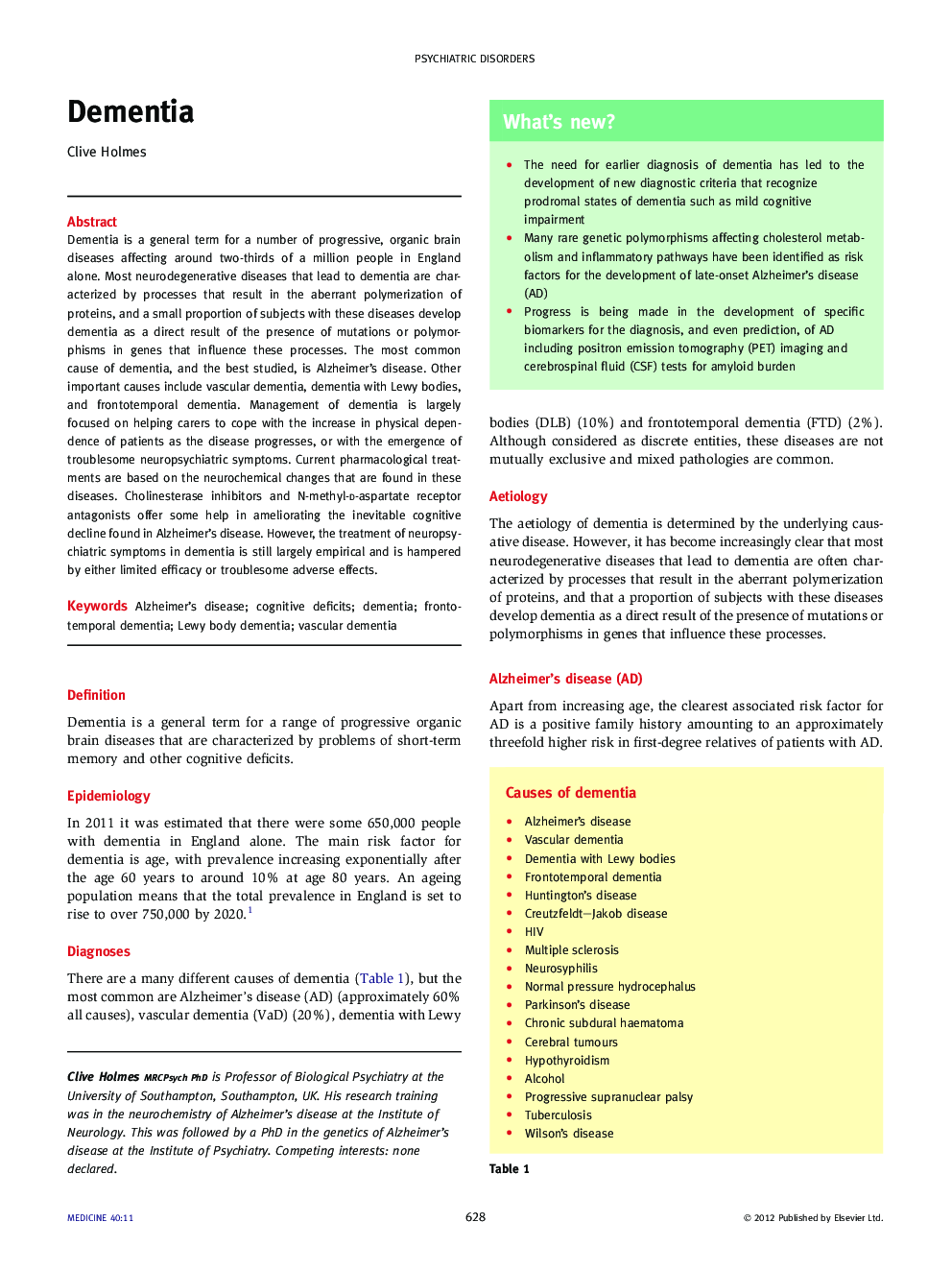| Article ID | Journal | Published Year | Pages | File Type |
|---|---|---|---|---|
| 3803967 | Medicine | 2012 | 4 Pages |
Dementia is a general term for a number of progressive, organic brain diseases affecting around two-thirds of a million people in England alone. Most neurodegenerative diseases that lead to dementia are characterized by processes that result in the aberrant polymerization of proteins, and a small proportion of subjects with these diseases develop dementia as a direct result of the presence of mutations or polymorphisms in genes that influence these processes. The most common cause of dementia, and the best studied, is Alzheimer's disease. Other important causes include vascular dementia, dementia with Lewy bodies, and frontotemporal dementia. Management of dementia is largely focused on helping carers to cope with the increase in physical dependence of patients as the disease progresses, or with the emergence of troublesome neuropsychiatric symptoms. Current pharmacological treatments are based on the neurochemical changes that are found in these diseases. Cholinesterase inhibitors and N-methyl-d-aspartate receptor antagonists offer some help in ameliorating the inevitable cognitive decline found in Alzheimer's disease. However, the treatment of neuropsychiatric symptoms in dementia is still largely empirical and is hampered by either limited efficacy or troublesome adverse effects.
